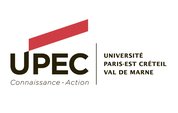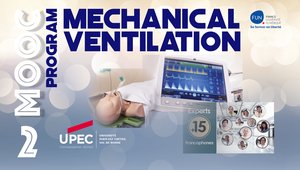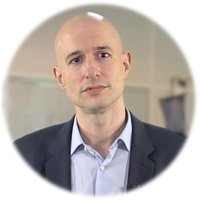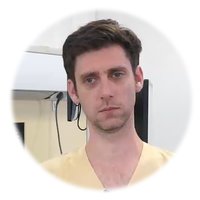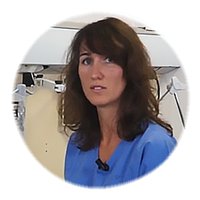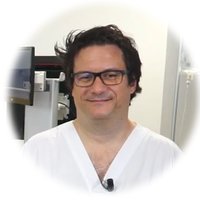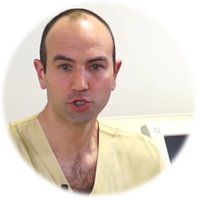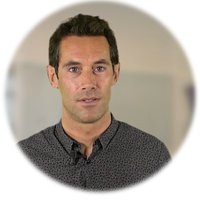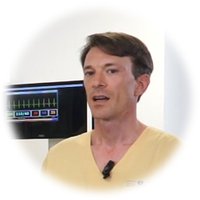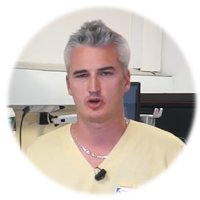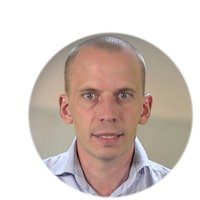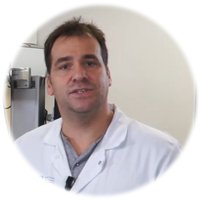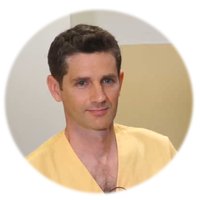Mechanical ventilation: advanced level
- Duration: 6 weeks
- Effort: 12 hours
- Pace: Self paced
- Languages: English and french
What you will learn
At the end of this course, you will be able to:
The EIVASION MOOC "Advanced Level" is devoted to the personalization of mechanical ventilation. It corresponds to the second part of a two-part MOOC program. Therefore, it is recommended to have followed the first part (entitled "Mechanical Ventilation: the Fundamentals") to fully benefit from this second part, whose objectives are to initiate learners:
- to patient-ventilator interactions (including asynchronies),
- to the principles of lung protective ventilation and weaning,
- to monitoring tools (such as echography) and adjunctive techniques (such as aerosol therapy) during mechanical ventilation,
- to proportional modes and advanced monitoring techniques in ventilation (optional).
This MOOC aims to make learners operational so that they are able to make appropriate decisions in many clinical situations.
Description
Mechanical ventilation is the primary life support for critically ill patients. Therefore, it is an essential life-saving technique in intensive care, emergency medicine, and anesthesia. However, if poorly adjusted, it can cause complications and increase mortality.
To achieve its objectives, this MOOC offers particularly innovative educational content based on simulation. EIVASION is a French acronym for "Innovative Teaching of Mechanical Ventilation through Simulation".
All teachers are clinical experts in the field of mechanical ventilation. The scientific committee of the EIVASION MOOC is composed of Prof. G.Carteaux, Prof. A.Mekontso Dessap, Dr. L.Piquilloud, and Dr. F.Beloncle.
Format
The course lasts for 6 weeks, the first of which is devoted to presenting the MOOC and the FUN platform. Learners are expected to spend 2 hours per week on the course. Pedagogical resources include explanatory videos on theoretical parts, as well as simulation videos made "at the simulator's bedside" using interactive multi-camera shooting to reproduce teaching at the bedside of a real patient. Indeed, the simulator used is capable of reproducing any type of patient under mechanical ventilation. Moreover, during immersive serious games made up with simulation videos, you will be asked to make diagnoses and therapeutic decisions.
Prerequisites
This MOOC is primarily aimed at anyone who wishes to improve their use of mechanical ventilation. The list mainly includes intensive care and anesthesia specialists, but also any other physicians practicing critical care, as well as students in all of these specialties. This MOOC is also aimed at paramedical personnel involved in the care of critically ill patients (nurses, anesthesia nurses, physiotherapists, respiratory therapists…), as well as professionals working in the artificial ventilation industry. This list is, of course, not exhaustive. To fully benefit from this MOOC, it is advisable to have followed the EIVASION MOOC entitled "Mechanical Ventilation: the Fundamentals".
Assessment and certification
"Memory quizzes" will be conducted after each video. These are easy questions designed to memorize what the learner has just watched in a video. "Exercise quizzes" will be offered at the end of each week. They are a bit less easy and require a good understanding of the different chapters covered during the week.
A successfully completed follow-up badge is awarded by FUN to learners who score over 60% on the evaluation quizzes.
The course in English version allows to obtain a certificate. In addition to the activities and quizzes, you will have to take a one-hour remotely proctored exam, consisting of multiple-choice questions (MCQs). The price of registration for the qualifying course is €150.
Course plan
- Week 0: Introduction to the MOOC and FUN platform
- Week 1: Patient-ventilator interactions in ACV
- Week 2: Patient-ventilator interactions in PSV and NIV
- Week 3: Monitoring tools and adjunctive techniques
- Week 4: Protective ventilation and weaning
- Week 5: On the road to expertise: advanced monitoring and proportional modes
This course is part of a program
Mechanical ventilation
The University of Paris-Est Créteil offers a two-course MOOC program to train in mechanical ventilation in critical care.
Course team
Guillaume Carteaux
Categories
Armand Mekontso Dessap
Categories
François Beloncle
Categories
Lise Piquilloud
Categories
Audrey De Jong
Categories
Nicolas de Prost
Categories
Stephan Ehrmann
Categories
Keyvan Razazi
Categories
Hadrien Roze
Categories
Frédéric Schlemmer
Categories
Matthieu Schmidt
Categories
Nicolas Terzi
Categories
Arnaud W. Thille
Categories
Emmanuel Vivier
Categories
Organizations
Pedagogical and multimedia engineering
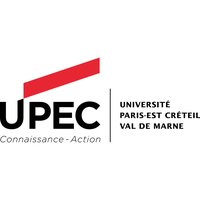
CENTRE D'INGÉNIERIE ET DE DÉVELOPPEMENT PÉDAGOGIQUE (CIDP)
Research in Pedagogy and Translation
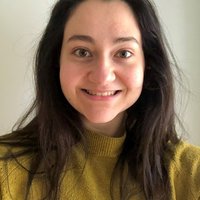
SALMA AL KAHF
Biomedical engineering
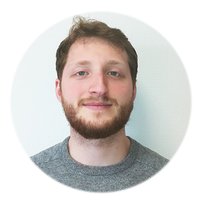
YVON DEPLANTE
Partenaires
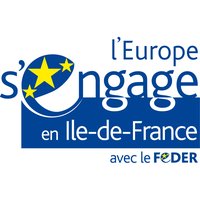
UE/FEDER/Région Ile de France
L'Europe s'engage en Ile-de-France avec le FEDER
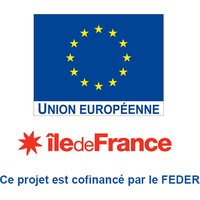
UE/FEDER/Région Ile de France
Ce projet est cofinancé par le FEDER
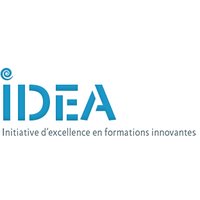
IDEA
Initiative d’Excellence en Formations Innovantes
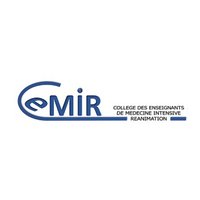
Collège des Enseignants de Médecine Intensive Réanimation (CEMIR)
License
License for the course content

Attribution-NonCommercial-NoDerivatives
You are free to:
- Share — copy and redistribute the material in any medium or format
Under the following terms:
- Attribution — You must give appropriate credit, provide a link to the license, and indicate if changes were made. You may do so in any reasonable manner, but not in any way that suggests the licensor endorses you or your use.
- NonCommercial — You may not use the material for commercial purposes.
- NoDerivatives — If you remix, transform, or build upon the material, you may not distribute the modified material.
License for the content created by course participants

Attribution-NonCommercial-NoDerivatives
You are free to:
- Share — copy and redistribute the material in any medium or format
Under the following terms:
- Attribution — You must give appropriate credit, provide a link to the license, and indicate if changes were made. You may do so in any reasonable manner, but not in any way that suggests the licensor endorses you or your use.
- NonCommercial — You may not use the material for commercial purposes.
- NoDerivatives — If you remix, transform, or build upon the material, you may not distribute the modified material.


